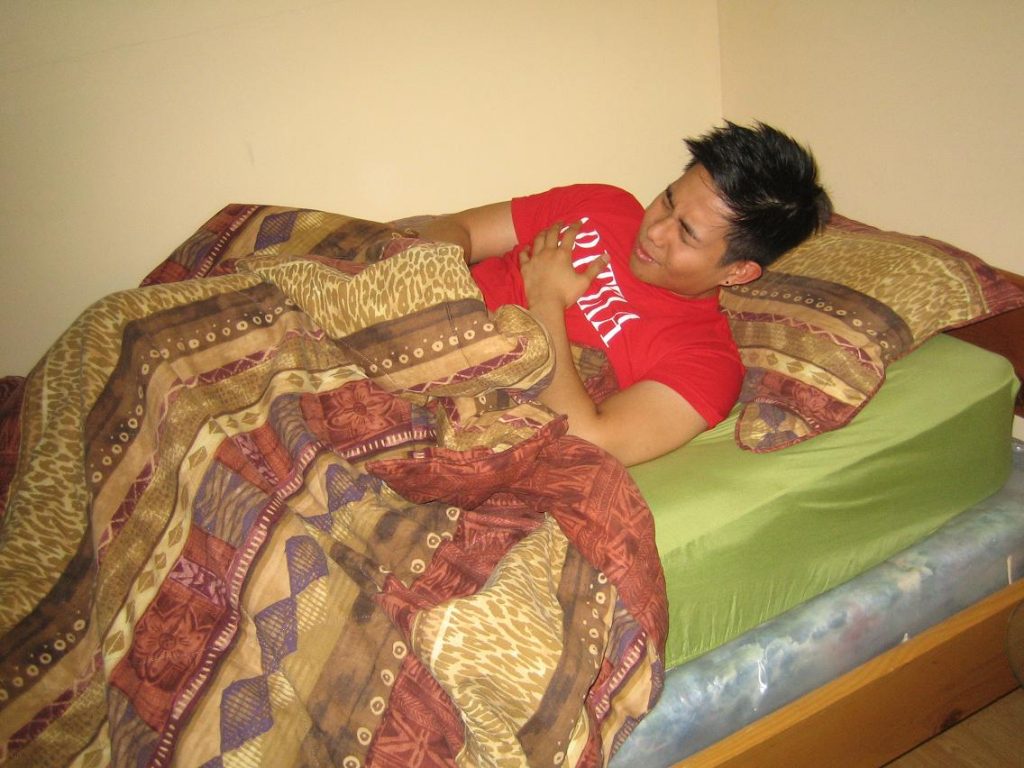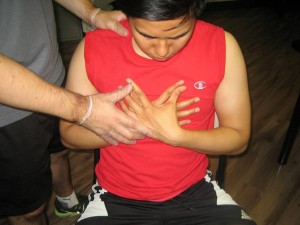Muscoloskeletal chest pain or chest wall pain is characterized by discomfort or pain associated to the muscles and bones of the chest wall.
Causes of musculoskeletal chest pain
- Trauma to the chest wall causes sprain and strains as well as bruises or fractures to the ribs. It can be caused by being strucked by a baseball or slight trauma such as lifting a heavy object.
- Costochondritis which involves tenderness and pain in the costochondral junction.
- Muscoloskeletal chest pain can be caused by lower rib pain or slipping rib syndrome which is a condition affecting the lower ribs and causes pain in the lower area of the chest or the abdomen. The lower ribs which are disconnected from the lower part of the breastbone due to trauma.
- Precordial Catch is a common condition in children or young adults where sudden and severe pain occurs in the left side of the chest that last for a few seconds to minutes.
Trauma to the chest wall causes sprain and strains as well as bruises or fractures to the ribs. - Stress fractures can cause chest pain in adults performing strenous and repetitive movements that uses the upper body such as rowers and baseball pitchers.
Treatment
- Take plenty of rest. Avoid straining the muscles and the joint of the ribs for fast healing of the condition.
- Take the prescribed over-the-counter non-steroidal anti-inflammatory drugs (NSAIDs) such as aspirin, ibuprofen and naproxen to lessen the pain due to cartilage and muscular chest pain. This medication prevents the inflammation process either in the cartilage or the muscles.
- Warm up before performing exercises to prevent musculoskeletal chest pain. Stretch the group of muscles in the chest. Lift the arms straight over the head, then stretch it as far to the back and sides. This stretching relaxes and expands the muscles of the chest.
- Apply a heating pad on the affected area. Place the heated pad on the affected area from time to time to prevent burns. The heat loosens up the tight muscles and promotes fast healing of the condition. After applying heat on the area, massage the area to further lessen the tension on the muscles.
Seek medical help immediately if the symptoms persist such as pain that lingers even after allowing the body to rest. Accidents causing chest trauma can result to a broken rib that can damage heart and lungs if not properly treated.
Tips
- The musculoskeletal chest pain can be caused by various conditions in which some are harmless and others are fatal. Always seek medical help immediately as soon as possible when experiencing this condition.
- If the pain becomes severe, there is difficultly breathing and pain lingers for days despite treatment, seek medical help immediately.
- Get immediate medical diagnosis if there is a family history of musculoskeletal chest pain.
- A traumatic injury to the chest such as in vehicular accidents requires further assessment due to the possibility for fractures.
FACT CHECK
https://www.verywellhealth.com/chest-wall-pain-1745816
https://www.healthline.com/health/chest-wall-pain
https://www.webmd.com/pain-management/guide/musculoskeletal-pain

